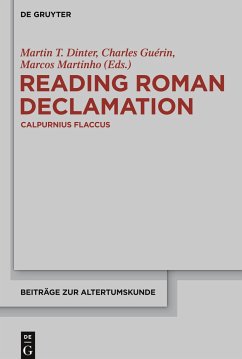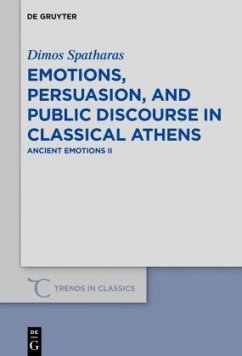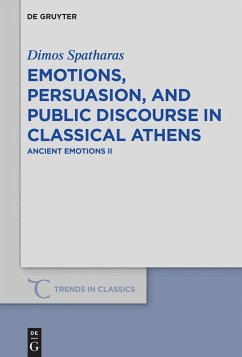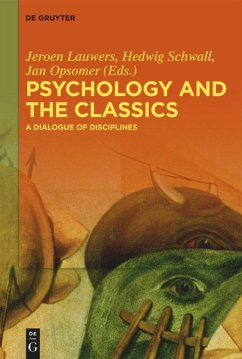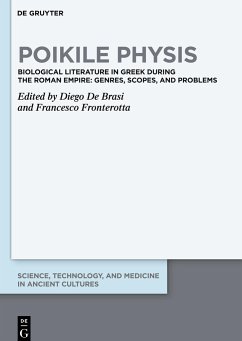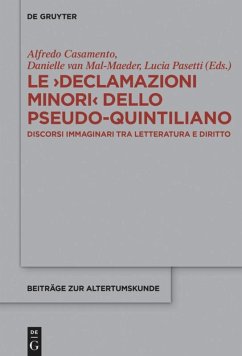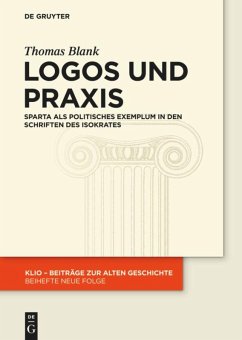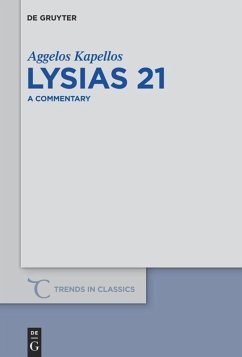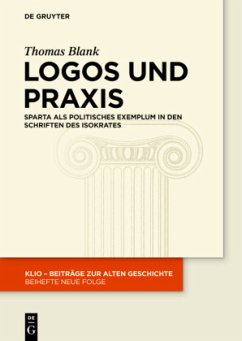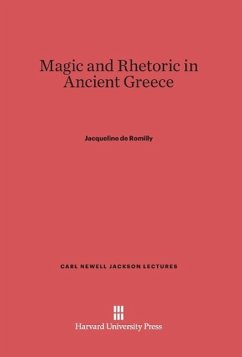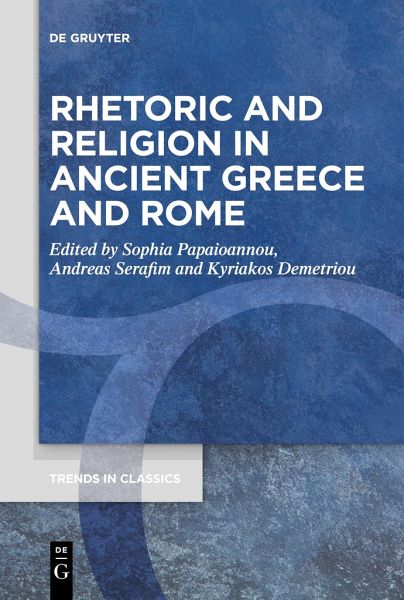
Rhetoric and Religion in Ancient Greece and Rome
Versandkostenfrei!
Versandfertig in 6-10 Tagen
15,99 €
inkl. MwSt.

PAYBACK Punkte
8 °P sammeln!
It is perhaps a truism to note that ancient religion and rhetoric were closely intertwined in Greek and Roman antiquity. Religion is embedded in socio-political, legal and cultural institutions and structures, while also being influenced, or even determined, by them. Rhetoric is used to address the divine, to invoke the gods, to talk about the sacred, to express piety and to articulate, refer to, recite or explain the meaning of hymns, oaths, prayers, oracles and other religious matters and processes. The 13 contributions to this volume explore themes and topics that most succinctly describe t...
It is perhaps a truism to note that ancient religion and rhetoric were closely intertwined in Greek and Roman antiquity. Religion is embedded in socio-political, legal and cultural institutions and structures, while also being influenced, or even determined, by them. Rhetoric is used to address the divine, to invoke the gods, to talk about the sacred, to express piety and to articulate, refer to, recite or explain the meaning of hymns, oaths, prayers, oracles and other religious matters and processes. The 13 contributions to this volume explore themes and topics that most succinctly describe the firm interrelation between religion and rhetoric mostly in, but not exclusively focused on, Greek and Roman antiquity, offering new, interdisciplinary insights into a great variety of aspects, from identity construction and performance to legal/political practices and a broad analytical approach to transcultural ritualistic customs. The volume also offers perceptive insights into oriental (i.e. Egyptian magic) texts and Christian literature.





